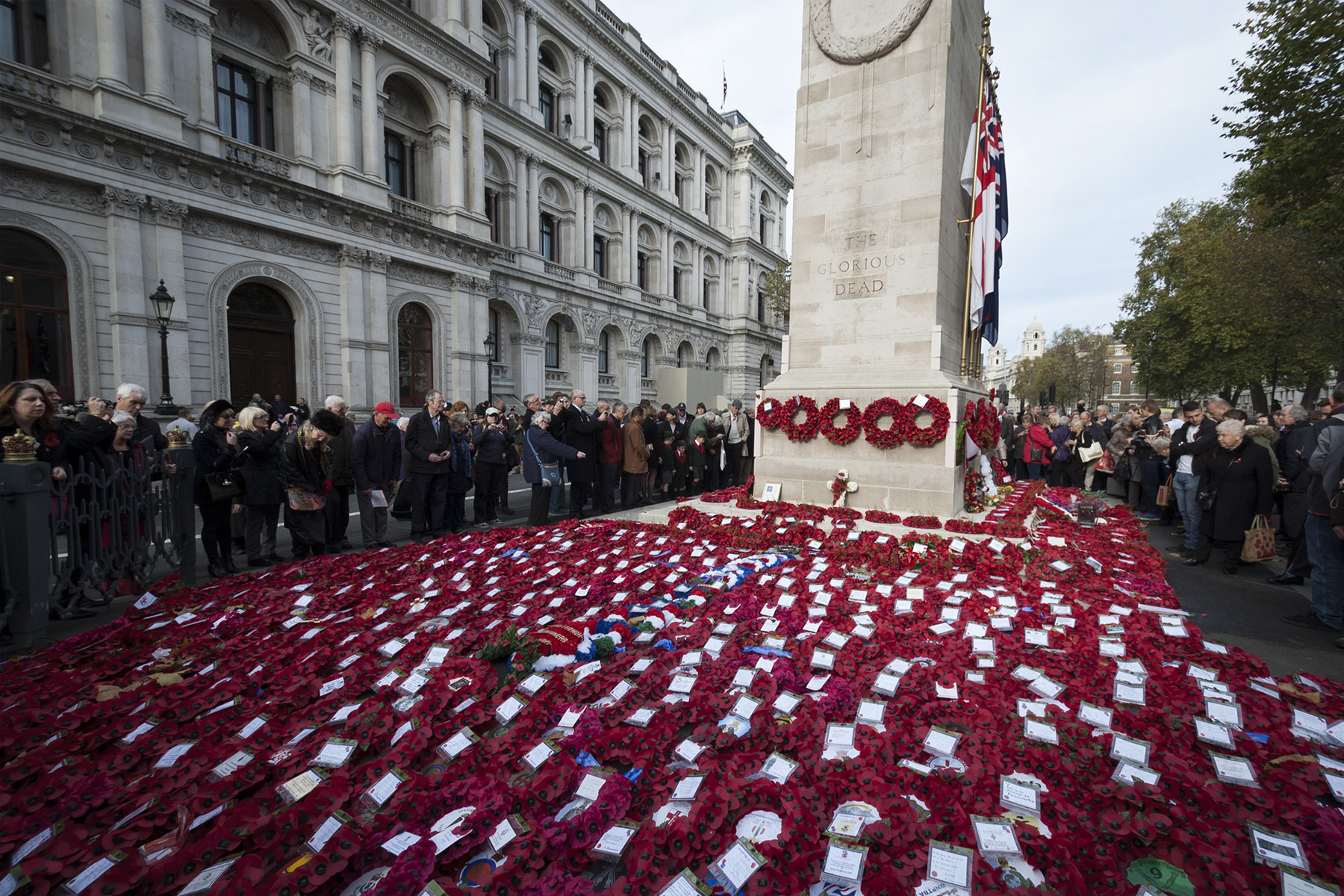Every Remembrance Sunday, like many of you, I watch the ceremony centred on the Cenotaph in London and through the magic of television we see moving ceremonies happening across this land of ours. Aging veterans proudly march past memorials, poppy wreaths are laid, the words ‘Lest we forget’ echo down the generations. My tears are for the futility, the tragedy and the knowledge that more wars will come. My memories are of young soldiers damaged by the Vietnam War; countless children in so many parts of the world whose bodies, families, villages, towns and countries are blasted into oblivion. But I’m getting ahead of myself.
When I was 11, my father took me to London as a reward for passing my 11 plus examination which took me on to grammar school. He walked my legs off showing me the Houses of Parliament, Trafalgar Square and Nelsons’ column, then up Whitehall to the Cenotaph. This was 1951 and as we slowly approached my father tipped his trilby hat in respect. I noticed every man who walked past, slowed down and tipped their hat also. I have never forgotten that simple, genuine mark of respect. It spoke a thousand words to me. Neither have I forgotten the tears and sudden gruffness in my fathers’ voice as he explained what this powerful memorial stood for. Was that the moment that nourished a dream to take up nursing, like my mother, and to help others in time of need?
Later I became a Girl Guide, and was so proud to be in the Blue Tit patrol, and the badges I earned and carefully stitched on to my uniform sleeve. One was for first aid.
“The most precious gift any of us can give damaged children is hope for the future and the belief that they can and will, and do, make a difference in their efforts to make our world a better place”.
Many of you are reading my first book, and possibly the second one also. You will understand what an important part maps have played from my young childhood. Father always had a large map of the world on the sitting room wall, and told us stories from all over the world, the lessons learned from his Merchant Navy career during the war and could easily pick out Montevideo, the Gilbert and Ellice Islands and Freemantle on that map. Together with a brilliant geography teacher at school–Mr Pritchard, who brought countries to life, just as my father did–the thirst for travel and cultures so different from my own–were well and truly fired up.
You will know that following my nurse and midwife training I set off on my travels. I first worked for Save the Children in 1967 and was sent to help set up a rehabilitation centre in a coastal town in south Vietnam called Qui Nhon. The 3 years I spent there were what I call “my growing up years”.
Babies and toddlers burned by napalm; machine gunfire tearing through spinal columns; metal shards thrown out by grenades blinded anyone within range and mines blew off legs, destroyed genitals. Having grown up in the peace and tranquillity of Snowdonia, the shock, the adjustment and eventual exhausting acceptance that this is what war is, and is not for the faint hearted. It left me with an anger, that simmers still.
Some 10 years later, I again worked with Save the Children and this time was sent to Thailand, to a camp of 42,000 survivors of Cambodians following the Pol Pot regime where 2.5 million people were killed by the Khmer Rouge. I have never experienced before or since the sights, sounds and damage done to people by other people as I did there in Sa Keao camp in 1979–1980.
But, just like my Vietnam experience, I learned that in the darkest of places there so many survivors who do nothing but good. They shine a light into those dark corners, and they are my inspiration every day.
The most precious gift any of us can give damaged children is hope for the future and the belief that they can and will, and do, make a difference in their efforts to make our world a better place.
Over the years and whenever I can, I speak out for Save the Children, knowing first hand how their tireless work continually gives healing and opportunity to child survivors.

